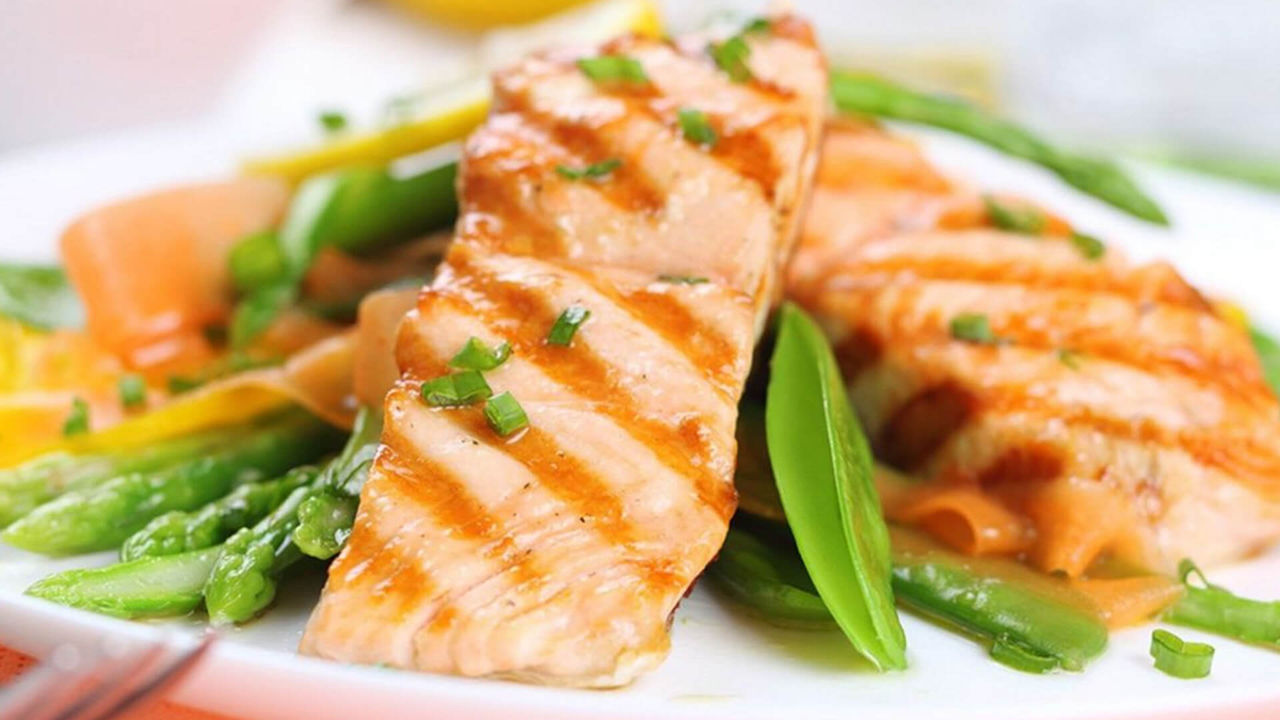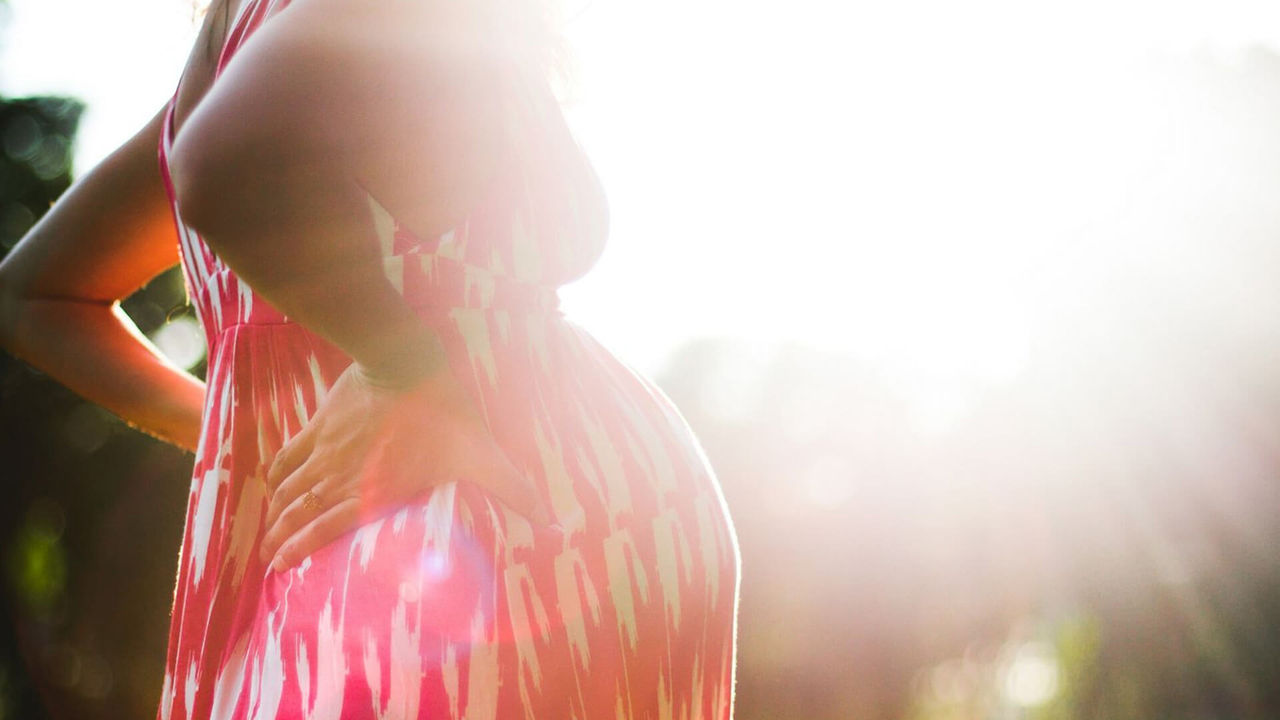- Superfoods are foods that contain more nutrients or beneficial components than others
- Superfoods are nutrient-dense foods that can be included in your pregnancy to support baby development and health
- Specific fruit, vegetables, wholegrain breads and cereals, oily fish, nuts, seeds, lean proteins and dairy products can be superfoods
Superfoods and pregnancy

Key points
Certain foods contain more nutrients or beneficial components than others, leading them to be labelled “superfoods”. Although not quite as super as we might be led to believe, these foods can be a good way to boost your intake of vitamins, minerals and antioxidants. Learn which nutrient-dense foods to include in your pregnancy diet to support your baby’s development and future health.
What are superfoods?
Most people have heard of, and understand, the term superfood. But in fact, it has no official definition and is felt to be so misleading that in Europe it has been banned for use. As yet, no such ruling has been made in Australia and New Zealand. Foods that are referred to as superfoods often have a higher content of nutrients per gram than other foods. For example, 20g of blueberries might provide a higher amount of selected nutrients than are found in 20g of strawberries.
The concern is that people might think they can continue eating unhealthy foods and undo the damage by eating so-called superfoods. What’s more, these foods are often tested in much higher concentrations than you would normally eat. What is true is that some foods are more nutrient-dense than others. And during pregnancy, eating a variety of nutrient-dense foods as part of a balanced diet is a good way to provide the vitamins and minerals your baby needs for healthy development.
Beneficial nutrient-dense foods for pregnancy
Fruits and vegetables
By including a variety of fruits and vegetables from a range of colours and by enjoying different parts of the leaf or the root you will ensure you get plenty of vitamins and minerals, dietary fibre and phytonutrients. Fruits and vegetables are also low in kilojoules which makes them great choices to reduce excess weight gain. You can eat them raw, canned or cooked. Canned varieties can sometimes be preserved in syrup which can increase their sugar content, so it is important to look for varieties tinned in real fruit juice. The most important message is to eat plenty of them!
Citrus fruits such as oranges and mandarins are a great source of vitamin C. Vitamin C is important to help fight infections and protect cells and to make collagen, the main structural protein of your baby’s body. It also helps your body absorb iron, which is an important nutrient for your baby’s developing brain. Bananas are a good source of energy, as well as potassium and vitamin B6. It is important to know that fruit can be high in natural sugars, so for those who have gestational diabetes it is best to talk to your dietitian or managing health care professional in regards to appropriate portion sizes.
Wholegrain breads and cereals
Wholegrain breads and cereals are a good source of B vitamins and a fibre-rich source of energy which can assist in constipation (a common occurrence in pregnancy). In Australia and New Zealand all bread (except organic) is fortified with folic acid, which helps to support your baby’s neural tube development. Folic acid content will be written on the nutrition information panel. It’s also important to still follow recommendations to take a folic acid supplement of 400-500ug per day for at least 1 month preconception and for the first 3 months of pregnancy.
Oily fish, nuts and seeds
Oily fish is an excellent source of many beneficial nutrients for you and your baby. As the name suggests, they are a good source of fats – Omega 3. These fatty acids support your baby’s developing brain.A lean protein oily fish, such as salmon, mackerel, sardines and tuna, is also a good source of vitamin D, vitamin A and selenium. It is recommended that you eat 2 to 3 portions per week.
Take care with fish that contains high levels of mercury, which can damage your baby’s developing nervous system. If you are vegetarian, you can boost your Omega-3 intake by including walnuts or rapeseed and linseed oil in your pregnancy diet.
Lean proteins
Include iron-rich foods such as lean red meats, chicken, legumes and tofu in your diet. Iron is important for your baby’s developing brain. During pregnancy a good iron intake will help prevent you getting iron deficiency after baby is born. Well-cooked seafoods and eggs are also a great source of lean protein to include in your diet, they contain iodine which is important for growth and development of your baby.
Dairy foods
Include calcium-enriched foods such as milk and hard cheeses in your diet. Probiotic-containing yoghurts are a good choice for dual benefits: they help to build gut flora which is important for the development of your baby’s immune system, whilst also being a good source of protein and calcium.
Nutrient-rich ideas for meals and snacks
- Grilled salmon with a spinach and watercress salad
- Broccoli and bok choy stir-fry with fish, chicken or pork
- A mixed fruit salad of blackberries, blueberries and banana slices
- Sardines on wholegrain toast
- Baked sweet potato with a healthy topping, such as hummus or cottage cheese
- Chia seed pudding with low fat probiotic yoghurt
Related pages

Get in touch with our Careline experts
When your little one is unhappy or unwell you want reliable support from a trusted source. Our Careline team of nutritionists, dietitians and midwives specialise in infant and child health, offering free nutrition, feeding and product information.
Every feeding journey is unique
Not every parent can produce breast milk. No matter what choice you make, we will support your unique feeding journey.
We at Nutricia believe in providing the best nutrition for babies, which is why we recognise breast milk is uniquely superior for babies as it provides many benefits. It is important that mums have a healthy diet to support breastfeeding. A decision not to breastfeed, or partial bottle feed, may reduce breast milk supply making it difficult to reverse. The cost and social implications of using feeding methods should be considered. Always seek professional advice about feeding your baby. Ensure formula is used as directed as improper use can affect baby’s health.
REMEMBER: The information on this page is general only. If you have any concerns about your baby’s poo or questions about constipation or any other health concerns, please speak to a healthcare professional, like a Pharmacist, GP or Maternal Child Health Nurse.



